Milwaukee 3622-20 Handleiding
Milwaukee
Laserwaterpas
3622-20
Bekijk gratis de handleiding van Milwaukee 3622-20 (20 pagina’s), behorend tot de categorie Laserwaterpas. Deze gids werd als nuttig beoordeeld door 31 mensen en kreeg gemiddeld 4.3 sterren uit 16 reviews. Heb je een vraag over Milwaukee 3622-20 of wil je andere gebruikers van dit product iets vragen? Stel een vraag
Pagina 1/20

Cat. No. / No de cat.
3622-20
M12™ CROSS LINE & PLUMB POINTS LASER
LASER À LIGNE TRANSVERSALE ET POINTS D’APLOMB M12™
LÁSER DE PUNTOS TRANSVERSALES Y DE PLOMADA M12™
OPERATOR'S MANUAL
MANUEL de L'UTILISATEUR
MANUAL del OPERADOR
WARNING To reduce the risk of injury, user must read and understand operator's manual.
AVERTISSEMENT An de réduire le risque de blessures, l'utilisateur doit lire et bien
comprendre le manuel.
ADVERTENCIA Para reducir el riesgo de lesiones, el usuario debe leer y entender el manual.
WARNING To reduce the risk of injury, user must read and understand operator's manual.
AVERTISSEMENT An de réduire le risque de blessures, l'utilisateur doit lire et bien
comprendre le manuel.
ADVERTENCIA Para reducir el riesgo de lesiones, el usuario debe leer y entender el manual.

2
GENERAL POWER TOOL
SAFETY WARNINGS
WARNING
Read and understand all instruc-
tions. Failure to follow all instructions
listed below, may result in electric shock, re and/or
serious personal injury. Save all warnings and in-
structions for future reference.
• Save these instructions - This operator's manual
contains important safety and operating instructions.
LASER SAFETY
WARNING
The device produces visible laser
beams, which are emitted from the
tool.
• This device complies with 21 CFR 1040.10 and
1040.11 except for conformance with IEC 60825-1
Ed. 3., as described in Laser Notice No. 56, dated
May 8, 2019.
•Laser light - Do not stare into beam or view di-
rectly with optical instruments. Do not point laser
light at others. Laser light can cause eye damage.
WORK AREA SAFETY
• Ensure adequate safeguards at the work site
(e.g. surveying site when measuring on roads,
construction sites, etc.).
• Avoid dangerous environments. Avoid extended
exposure to rain, snow, damp or wet locations. Do
not use in the presence of explosive atmospheres
(gaseous fumes, dust or ammable materials).
PERSONAL SAFETY
• Do not allow persons unfamiliar with the tool,
these safety instructions, and the tool's opera-
tor's manual to operate the tool. This tool can be
dangerous in the hands of untrained users.
• Do not overreach. Keep proper footing and
balance at all times. This enables better control
of the tool in unexpected situations.
BATTERY TOOL USE AND CARE
• Recharge only with the charger specied by the
manufacturer. A charger that is suitable for one type
of battery pack may create a risk of re when used
with another battery pack.
• Use power tools only with specically designated
battery packs. Use of any other battery packs may
create a risk of injury and re.
• When battery pack is not in use, keep it away
from other metal objects, like paper clips, coins,
keys, nails, screws or other small metal objects,
that can make a connection from one terminal
to another. Shorting the battery terminals together
may cause burns or a re.
• Under abusive conditions, liquid may be ejected
from the battery; avoid contact. If contact ac-
cidentally occurs, flush with water. If liquid
contacts eyes, additionally seek medical help.
Liquid ejected from the battery may cause irritation
or burns.
• Do not use a battery pack or tool that is dam-
aged or modied. Damaged or modied batteries
may exhibit unpredictable behavior resulting in re,
explosion or risk of injury.
• Do not expose a battery pack or tool to re or
excessive temperature. Exposure to re or tem-
perature above 265°F (130°C) may cause explosion.
• Follow all charging instructions and do not charge
the battery pack or tool outside the temperature
range specied in the instructions. Charging
improperly or at temperatures outside the specied
range may damage the battery and increase the risk
of re.
• STORE YOUR BATTERY AND TOOL in a cool, dry
place. Do not store battery where temperatures may
exceed 120°F (50°C) such as in direct sunlight, a
vehicle or metal building during the summer.
SPECIFIC SAFETY RULES FOR
LASER LEVELS
•Watch out for erroneous results if the tool is
defective or if it has been dropped, misused or
modied.
•Do not dispose of tool or batteries together with
household waste material! Tool and batteries that
have reached the end of their life must be collected
separately and returned to an environmentally
compatible recycling facility.
•Ensure tool magnets are securely mounted to
a metal surface. Magnet strength may not hold
on thin metal surfaces, causing the tool to fall.
• Maintain labels and nameplates. These carry
important information. If unreadable or missing,
contact MILWAUKEE for a free replacement.
• The device conforms to the most stringent
requirements of the relevant Electromagnetic
Compatibility (EMC) Standards and Regulations.
Yet, the possibility of causing interference in other
devices cannot be totally excluded.
•
CAUTION
Use of controls or adjustments or
performance of procedures other
than those specied herein may result in hazard-
ous radiation exposure.
• Be sure to power o instrument after use. When
instrument will not be used for a long period, place
it in storage after removing batteries.
Federal Communications Commission
WARNING
Changes or modications to
this unit not expressly ap-
proved by the party responsible for compliance could
void the user’s authority to operate the equipment.
This equipment has been tested and found to comply
with the limits for a Class B digital device, pursuant to
Part 15 of the FCC Rules. These limits are designed
to provide reasonable protection against harmful in-
terference in a residential installation. This equipment
generates, uses and can radiate radio frequency
energy and, if not installed and used in accordance
with the instructions, may cause harmful interference
to radio communications.
However, there is no guarantee that interference will
not occur in a particular installation. If this equipment
does cause harmful interference to radio or televi-
sion reception, which can be determined by turning
the equipment o and on, the user is encouraged to
try to correct the interference by one or more of the
following measures:
• Reorient or relocate the receiving antenna.
• Increase the separation between the equipment and
receiver.
• Consult the dealer or an experienced radio/TV
technician for help.

3
FUNCTIONAL DESCRIPTION
1. Laser apertures
2. Laser mode indicator
3. On/O dial
4. Pivot Bracket
3
4
7
5
1
6
2
1
1
1
5. Micro adjust
6. Fuel gauge
7. Mode button
8
10
9
8. Threaded inserts
9. Magnets
10. Nail/Screw hole
SPECIFICATIONS
Cat. No. 3622-20 .....................................................
Volts.............................................................. 12 DC
Battery Type M12™ .................................................
Charger Type................................................M12™
Laser............................................................Class 2
Lines Max Power P ................................. AVG ≤ 7 mW
Points Max Power................................ P
AVG ≤ 1 mW
Pulse Frequency..........................................10 KHz
Pulse Duration Normal Mode T ................. p ≤ 80 µs
Pulse Duration Power Save.................... T
p ≤ 50 µs
Wavelength.......................................... 510-530 nm
Lines Beam Divergence 1 rad .................................
Points Beam Divergence 0.5 mrad ..........................
Storage Temp -4°F to 120°F ....................................
Working Range 125' .................................................
Range with Detector 165' .........................................
Accuracy ...............................................±1/8" @ 33'
Settle Time < 3 Seconds .........................................
Tripod Mount ..................................1/4"-20, 5/8"-11
Ingress Protection............................................ IP54
Drop Rating 1 m .......................................................
Leveling Auto ±°4 side to side, front to back ............
Recommended Ambient
Operating Temperature
.................. 14°F to 104°F
SYMBOLOGY
Volts
Direct Current
LASER RADIATION
DO NOT STARE INTO BEAM
CLASS 2 LASER PRODUCT
Magnets
Read operator’s manual
ASSEMBLY
WARNING
Recharge only with the charger
specied for the battery. For spe-
cic charging instructions, read the operator’s
manual supplied with your charger and battery.
Removing/Inserting the Battery
To remove the battery, push in the release buttons
and pull the battery pack away from the tool.
WARNING
Always remove battery pack before
changing or removing accessories.
To insert the battery, slide the pack into the body
of the tool. Make sure it latches securely into place.
WARNING
Only use accessories specically
recommended for this tool. Others
may be hazardous.
Power Save
Use power save mode to extend the battery run
time. Power save mode is indicated by dimmed laser
beams and the Mode indicator pulsing. Visual range
is decreased in power save mode. To turn power save
mode ON or OFF, press and hold Mode button for 3
seconds. The tool will automatically switch to power
save mode if less than 7% of battery charge remains.
Fuel Gauge
To determine the amount of charge left in the battery,
turn the tool . ON
LEDs Description
4 LEDs 66-100% Battery charge
3 LEDs 45-65% Battery charge
2 LEDs 18-44% Battery charge
1 LED 8-17% Battery charge
1 LED ashing 0-7% Battery charge
Power Save Mode enabled.*
1 LED ashes
4 times & tool
will not run
End of charge.
Charge the battery pack.
4 LEDs ash
alternately
System error. Tool shuts o.
Contact a MILWAUKEE service
facility
*When automatically switched to power save mode
due to low battery, the tool cannot be switched back
to normal mode until the battery is charged/replaced.
Product specificaties
| Merk: | Milwaukee |
| Categorie: | Laserwaterpas |
| Model: | 3622-20 |
Heb je hulp nodig?
Als je hulp nodig hebt met Milwaukee 3622-20 stel dan hieronder een vraag en andere gebruikers zullen je antwoorden
Handleiding Laserwaterpas Milwaukee
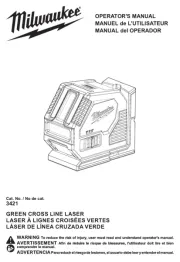
15 Juli 2025
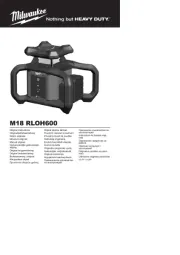
1 April 2025
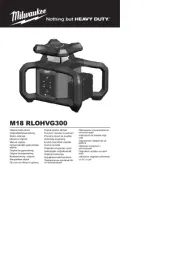
1 April 2025
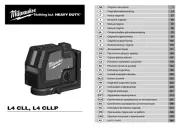
18 Maart 2025
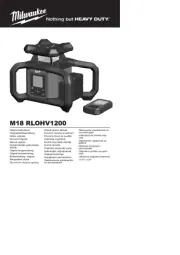
20 November 2024

19 Maart 2024

19 Maart 2024

18 Mei 2023

20 Maart 2023

4 Maart 2023
Handleiding Laserwaterpas
- Makita
- Bosch
- Ermenrich
- PLS
- Dedra
- Leica
- Proline
- Skil
- Alpha Tools
- Ozito
- Einhell
- Fluke
- Craftsman
- Toolcraft
- Stabila
Nieuwste handleidingen voor Laserwaterpas
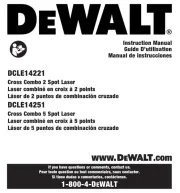
3 Augustus 2025
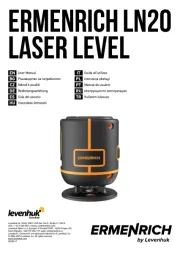
23 Juli 2025
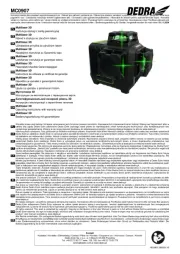
5 Juli 2025
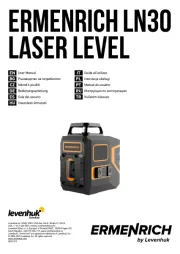
22 Juni 2025
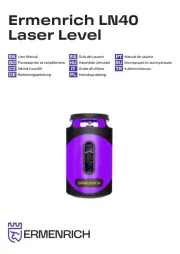
21 Juni 2025
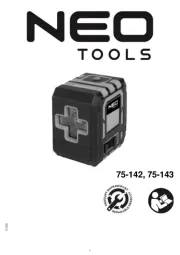
3 Juni 2025
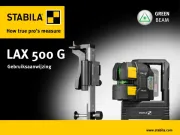
15 Mei 2025
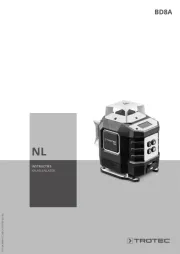
19 April 2025
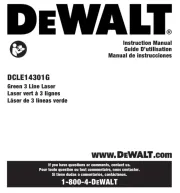
18 April 2025
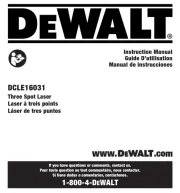
15 April 2025